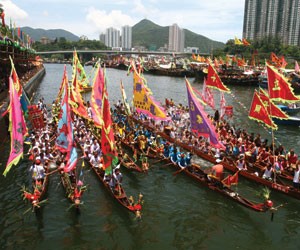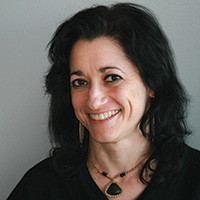Synchronizing 20 paddlers with the beat of a drum is no small feat. Yet that is the main challenge faced by participants vying to keep pace during a simulation of one of Hong Kong’s famed dragon boat races. The race requires ultimate coordination, making it one of Hong Kong’s premiere team-building activities.
Dragon boat racing has its roots in ancient China, where the first dragon boat races were reportedly held more than 2,500 years ago along the banks of the Yangtze River. Hong Kong’s annual Dragon Boat Festival is credited with helping to bring the sport into the mainstream.
Many local DMCs can organize dragon boat races for groups around Hong Kong.
“We offer a lot of team-building options, but the best is dragon boat racing,” says Katie Buxton, general manager of the Hong Kong office of Destination Asia (www.destination-asia.com), a DMC operating in 11 countries.
The DMC runs its races from Deep Water Bay on the south side of Hong Kong Island, where the Hong Kong Island Paddle Club operates.
“For the racing we get 20 people in a boat,” Buxton says. “No previous experience is necessary. First, teams practice paddling. Only powerful, perfectly synchronized teamwork can make the dragon boat soar through the water.”
Those who choose not to paddle can observe from a safety boat or perform the task of drum beating. The drummer leads the paddlers throughout a race using the rhythmic beat to indicate the frequency and synchronicity of all the paddlers’ strokes.
After the race, groups can organize a barbecue lunch overlooking the beach.
Discovery Bay (www.discoverybay.com.hk) in Lantau also offers dragon boat racing for groups, filling each boat with 24 paddlers.
“Dragon boat racing involves bonding and cooperation among team members,” says Charlotte Ho, associate director of destination marketing for Discovery Bay. “It’s getting more popular.”
Another culturally themed team-building option is participating in the lion dance. Though the lion dance is most commonly associated with Lunar New Year in the Chinese tradition, the 1,000-plus-year-old custom is also performed at other major festivals and requires considerable teamwork.
With Destination Asia, groups are given materials to make a dragon head and are taught the dance. Participants assume different roles, including that of the musicians and those making up the two halves of the lion.
“The competition is split,” Buxton says. “We judge on the dance and what the lion looks like. We also have facilitators that properly tie the team building into the conference.”
Destination Asia also uses Tai Chi classes for team building and organizes Mission Impossible-style races, where participants maneuver through Kowloon and Hong Kong using public transportation and solving clues along the way.
Swire Travel (www.swiretravel.com), another local DMC, arranges a Cultural Olympics, during which groups can rent a hotel ballroom and set up a stage with different booths for various local performing arts.
The group can be divided into teams and compete in a lion dance or other local custom.
“Participants can also dress up in Chinese opera makeup and costumes and do some acting,” says Edmund Tsang, general manager of destinations and events management for Swire Travel.
The Hong Kong Heritage Museum’s Cantonese Opera Heritage Hall is prepared to involve groups in role playing and face painting.




